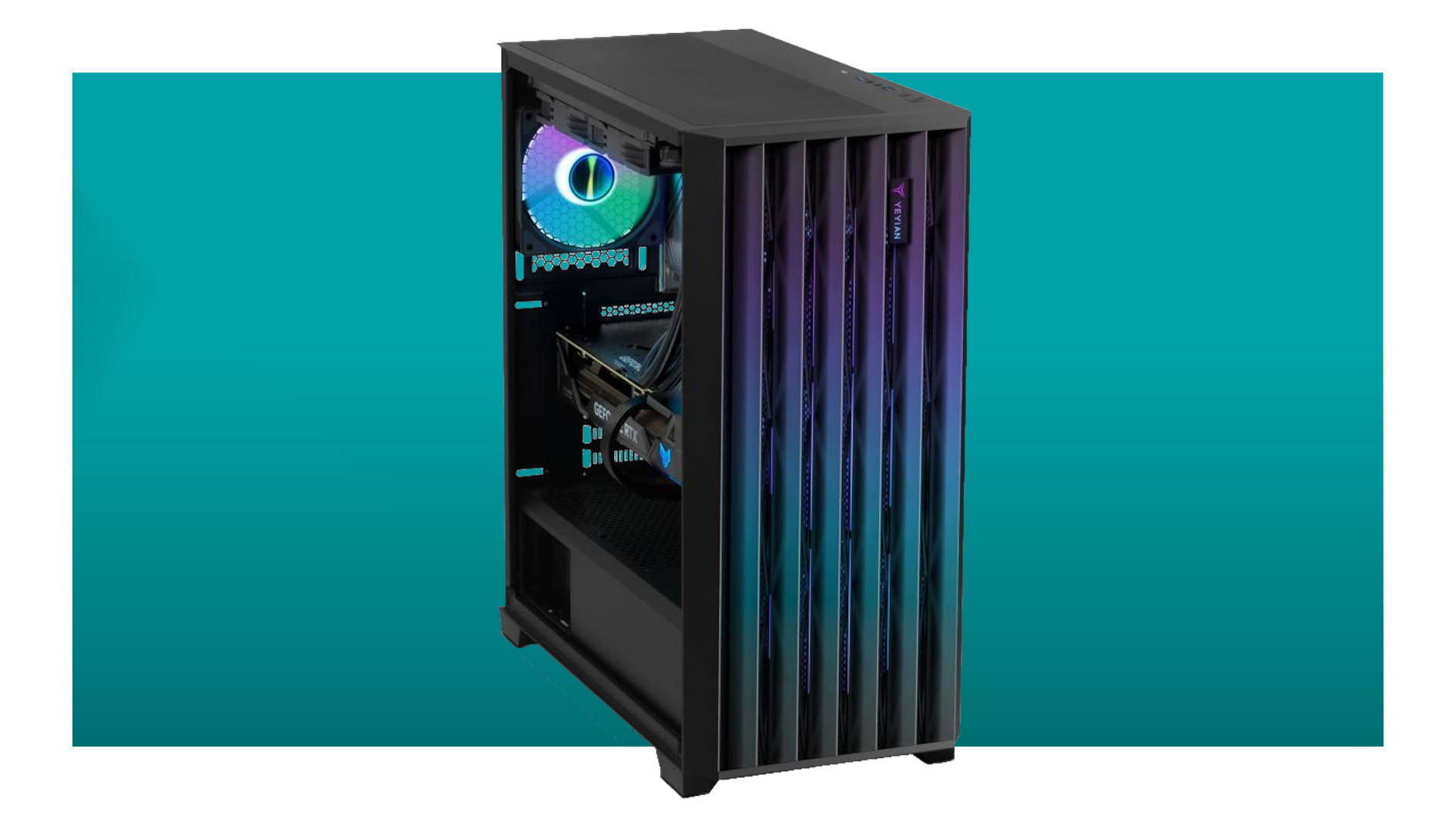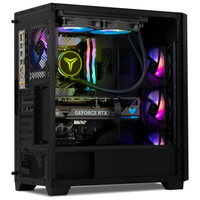The cheapest RTX 4080 gaming PC deal we've found sees $500 sliced off the cost of this well-rounded rig
At a cent under $2,000, it's one of the best ways to bag Nvidia's second fastest graphics card of this generation.

Yeyian Phoenix | Core i7 13700F | RTX 4080 Super | 32GB DDR5-6000 | 1TB NVMe SSD | $2,499.99 $1,999.99 at Newegg (save $500)
Two thousand bucks is a whole heap of money, but it gets you a mighty gaming PC here. That RTX 4080 Super will blitz through any game and the 16-core i7 13700F CPU also makes it pretty handy for content creation. The case design is very nice, too.
If you're planning on spending big money on a new gaming PC, you'll certainly be expecting a few things ticked off your list. One of the fastest graphics cards you can buy, for one. And it should have a decent CPU to ensure it can reach its full potential. Lots of fast RAM, plenty of storage, sensible cooling—they're all important, too. Well take all of that, put them into a simple but stylish case and you've got the Yeyian Phoenix gaming PC.
Let's start with the Core i7 13700F processor. It's a last-gen model from Intel but that doesn't matter as it has eight P-cores and eight E-cores, for 24 threads in total. Its default TDP is just 65 W, though there's no guarantee that Yeyian is using the standard Intel configuration at the moment. Even if it's not, the 13700F won't get super hot, as it's a non-K model—that does mean you won't be able to overclock it, though.
Those E-cores won't help much in gaming, but they're ideal for handling tasks where lots of threads are important, such as rendering and video editing in content creation workloads.
Then again, why use the CPU for that when you've got an RTX 4080 Super? This is Nvidia's second most powerful gaming GPU in its current GeForce line up and it'll easily cope with any game you care to throw at it. It supports the full feature set of DLSS 3.5 (AI-powered upscaling, frame generation, and ray tracing denoising) and while it's best suited for 4K gaming, its efficient architecture means it will churn out high frame rates at lower resolutions without getting hot or noisy.
High-end CPUs and GPUs need plenty of fast, dual-channel RAM in the motherboard and this Yeyian Phoenix comes with 32GB of DDR5-6000. Sure, that's 7% faster than the default maximum RAM speed supported, but Intel's chips easily cope with the higher clock speeds. This time last year, you'd often see DDR5-4800 being used in expensive gaming PCs, so it's nice to see vendors using more potent stuff.
It's a bit of a shame that there's only 1TB of NVMe storage and at this price, you normally hope to see 2TB on offer. However, such PCs are typically a little bit more expensive, and while it's not clear how many SSD slots are in the Phoenix, there will be at least one more, so adding a second cheap NVMe SSD will be a piece of cake.
As already mentioned, you won't be able to overclock the i7 13700F and neither will you be able to drop a K-version Intel chip into the motherboard and overclock that, as the B760 chipset won't let you. But unless you love tinkering with your gaming PC, you won't miss out—just plug it in, switch it on, and enjoy some serious gaming performance.
And thanks to the neat case design and RGB lighting in the 240 mm AIO liquid cooler, dual RAM sticks, and four case fans, it'll look great sat on your desk, too. Taking all of the hardware into account and the fact that this Yeyian Phoenix is one of the cheapest RTX 4080 Super gaming PCs we've seen, there's an awful lot to like about this deal.
The biggest gaming news, reviews and hardware deals
Keep up to date with the most important stories and the best deals, as picked by the PC Gamer team.

Nick, gaming, and computers all first met in 1981, with the love affair starting on a Sinclair ZX81 in kit form and a book on ZX Basic. He ended up becoming a physics and IT teacher, but by the late 1990s decided it was time to cut his teeth writing for a long defunct UK tech site. He went on to do the same at Madonion, helping to write the help files for 3DMark and PCMark. After a short stint working at Beyond3D.com, Nick joined Futuremark (MadOnion rebranded) full-time, as editor-in-chief for its gaming and hardware section, YouGamers. After the site shutdown, he became an engineering and computing lecturer for many years, but missed the writing bug. Cue four years at TechSpot.com and over 100 long articles on anything and everything. He freely admits to being far too obsessed with GPUs and open world grindy RPGs, but who isn't these days?


